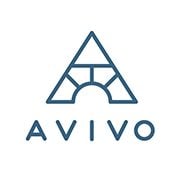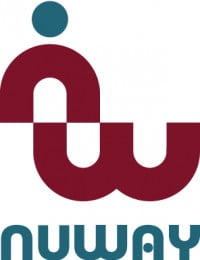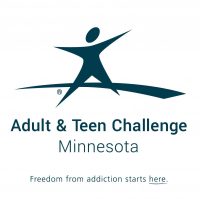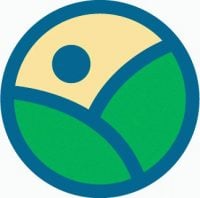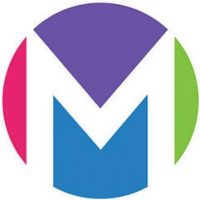Minnesota Indian Women's Resource Center - Nokimis Endaad
Drug Rehab Center in Minneapolis, Minnesota
Nokimis Endaad, a recovery center in Minnesota, offers addiction support and substance abuse services to American Indian women and their families using a culturally-responsive, holistic approach to recovery.
About This Minnesota Facility
Minnesota Indian Women's Resource Center - Nokimis Endaad, located in Minneapolis, Minnesota, is a recovery center offering support for addiction and substance abuse for American Indian women and their families. Nokimis Endaad provides a culturally-responsive program focused on helping this community heal through a holistic approach to recovery. The program includes individual and group counseling, outpatient treatment, and sober living services to help those affected build a long-term plan for recovery.
At Nokimis Endaad, clients receive personalized services based on their needs. Addiction treatment services such as relapse prevention methods and cognitive-behavioral therapy are available to help clients identify, understand, and work through the issues underlying their addiction. Additionally, they offer family-focused counseling to provide support to family members as they journey alongside their loved ones. Clients also receive community outreach, workshops and trainings, and education on the effects of addiction and different treatment strategies.
Nokimis Endaad is committed to providing quality care to their clients and is accredited by the Commission on Accreditation of Rehabilitation Facilities (CARF). They also have a license from the Minnesota Department of Human Services, and have been awarded several grants from organizations dedicated to improving the overall health and well-being of Native American people. Nokimis Endaad also offers a variety of cultural activities and ceremonies to honor and celebrate the American Indian culture.
Genders
Ages
Modality
Additional
Accreditations
State License
Conditions and Issues Treated
Opioid addiction treatment should be done in a medically supervised drug rehab. Opioid addiction treatment will include detoxification and drug rehab counseling to help both the user and their loved ones learn how to live a successful sober lifestyle. Methadone, buprenorphine, and naltrexone are three medications that can help treat opioid addiction. Individual drug rehab counseling sessions can be helpful to discuss any questions or concerns with the drug treatment program.
When addiction and psychiatric issues co-occur, the addict’s recovery is more successful when both conditions are treated. A dual diagnosis refers to a condition in which the patient is diagnosed with two health issues: addiction and bipolar disorder.
Usually, dual diagnosis sufferers are prescribed a combination of treatments for each condition. The most common therapies are psychotherapy, behavioral therapy, spiritual counseling, 12-step programs, and medication management.
Psychiatric conditions are an obstacle to recovery because they can create roadblocks to a healthy lifestyle. Drugs and alcohol may be used as a means of self-medication, which can have dangerous consequences. Over time, addicts build up a tolerance and suffer withdrawal symptoms when drug use is stopped.
With the proper treatment, dual diagnosis sufferers can overcome their conditions and achieve lasting sobriety.
Levels of Care Offered at Minnesota Indian Women's Resource Center - Nokimis Endaad
This center offers a variety of custom treatment tailored to individual recovery. Currently available are Drug Rehab, Dual-Diagnosis, Intensive Outpatient, Outpatient, with additional therapies available as listed below.
The Intensive Outpatient Program at Minnesota Indian Women's Resource Center - Nokimis Endaad is for those who need intensive care but would rather get it in the comfort of their own home. The treatment programs vary in duration and intensity and can be tailored to suit the individual’s needs. IOP helps the patient to live at home and gradually get back to their routine life.
Daily trips to the hospital that provides the treatment include intensive outpatient services (IOP). The patients gradually get back to their everyday lives. IOP benefits the most when the patients have a supportive family member or friend who can encourage them in their recovery.
Individuals struggling with drug addictions can get help from several treatment options, including inpatient and outpatient programs. Outpatient drug treatment programs can also provide patients with different levels of care, usually depending on the patient’s degree of addiction.
At an outpatient program in Minneapolis, a patient will attend a recovery program during the day and return home in the evening. Suppose a patient is struggling with drug addiction. In that case, an outpatient program can serve as an effective transition point during the recovery process.
Therapies & Programs
Individual therapy is a critical component of addiction recovery. It allows the patients to go deep into their core issues and discover how to handle those problems better. Therapy can be conducted in individual sessions as well as group settings. In individual therapy for addiction, the patient meets with their therapist one-on-one to focus on the underlying issues. This allows patients to open up and discuss personal topics they may not feel comfortable discussing in a group setting. This type of therapy can help develop solutions specific to each patient, which helps speed up the recovery process.
Family therapy is a crucial part of drug treatment and getting sober. It is one of the most effective ways to help addicts stay on the path to long-term sobriety. When a drug addict decides that they want to try and get sober, it takes the support of every person they love to succeed. It can be incredibly difficult for loved ones to watch an addict go through the pain and suffering of withdrawal, but by being there with them and supporting them, they can help to make sure that the addiction never returns.
One of the most important parts of family therapy is the relapse prevention plan. During treatment, therapists and doctors will often sit down with the addict and their family to develop a plan in case the addict ever feels like they want to use again. This plan should involve steps the addict and family can take together to prevent them from relapsing in the future. An addict’s family can play a vital part in helping them to avoid relapse because they can spot the warning signs and help them get back on track before it becomes too much of a problem.
Group therapy helps prevent addicts from feeling isolated or unique in their situation by offering a sense of comfort and fellowship. It also creates a forum for addicts to build their support systems and learn from each other. The group therapy sessions at Minnesota Indian Women's Resource Center - Nokimis Endaad occur in a group setting rather than one-on-one to create a safer, controlled environment where addicts feel comfortable.
Trauma therapy helps people dealing with addiction by allowing them to confront the traumas of their past and move past them. It is important to note that trauma therapy should not be confused with PTSD (post-traumatic stress disorder) Rather, it is used to treat the effects of trauma, which are often at the root of addiction.
Eye movement desensitization and reprocessing is a form of psychotherapy that allows individuals to heal from the emotional distress that is the result of disturbing life experiences. It uses alternating bilateral stimulation the therapeutic process where the patient moves his/her eyes back and forth while recalling distressing thoughts or feelings can be facilitated by this eye-movement technique.
- It is effective to treat a range of different problems such as: anxiety, depression and grief.
- short term therapy (8-16 sessions) and normally 10 sessions is maximum treatment time required for treating emotional problems.
- has been found to be as helpful as cognitive behavioural therapy or exposure therapy.
The best drug treatment centers offer various services to help addicts learn how to live without drugs. Since addiction is a chronic physical and mental illness, addicts need to learn as many life skills as possible to help them stay clean and sober.
Many drug treatment centers like Minnesota Indian Women's Resource Center - Nokimis Endaad offer life skills activities as part of their addiction recovery programs. Examples include cooking classes, employment training, resume writing seminars, parenting classes, and computer training. When addicts have various life skills to lean on, they’re better equipped to put their addiction behind them for good.
The primary goal of life skills activities at drug treatment centers like Minnesota Indian Women's Resource Center - Nokimis Endaad is to help addicts recover from addiction and learn how to live a useful, productive life. Life skills activities help addicts find employment, take care of their families, and give back to the community. After learning about these various life skills, addicts are better prepared to return to society and lead happy healthy lives.
Payment Options Accepted
For specific insurance or payment methods please contact us.
Is your insurance accepted?
Ask an expert, call (888) 674-0062
Additional Details
Specifics, location, and helpful extra information.
Minneapolis, Minnesota 55404 Phone Number(612) 728-2000 Meta DetailsUpdated November 25, 2023
Staff Verified
Patient Reviews
There are no reviews yet. Be the first one to write one.
Minneapolis, Minnesota Addiction Information
Minnesota is fighting an opioid epidemic that is leaving hundreds of its residents dead each year. Both prescription opioids and illicit opioids are widely abused in the Land of 10,000 Lakes. Heroin continues to be one of the most commonly abused drugs in the state, if not the most common illicit drug. Over 10% of all treatment admissions in Minnesota list heroin as their drug of choice.
The drug addiction problem in Minneapolis, Minnesota, is relatively bad. About 8.5% of people in Minneapolis abuse drugs. Additionally, there were 536 drug overdose deaths in 2016, a 20% increase from the previous year. There were 5,191 treatment admissions for primary alcohol dependence in 2016. Some of the most common programs include inpatient rehab, outpatient rehab, and sober living homes.
Treatment in Nearby Cities
- Northfield, MN (35.0 mi.)
- Pine City, MN (61.3 mi.)
- Cottage Grove, MN (17.7 mi.)
- Kasson, MN (69.0 mi.)
- Litchfield, MN (63.3 mi.)
Centers near Minnesota Indian Women's Resource Center - Nokimis Endaad
The facility name, logo and brand are the property and registered trademarks of Minnesota Indian Women's Resource Center - Nokimis Endaad, and are being used for identification and informational purposes only. Use of these names, logos and brands shall not imply endorsement. RehabNow.org is not affiliated with or sponsored by Minnesota Indian Women's Resource Center - Nokimis Endaad.




